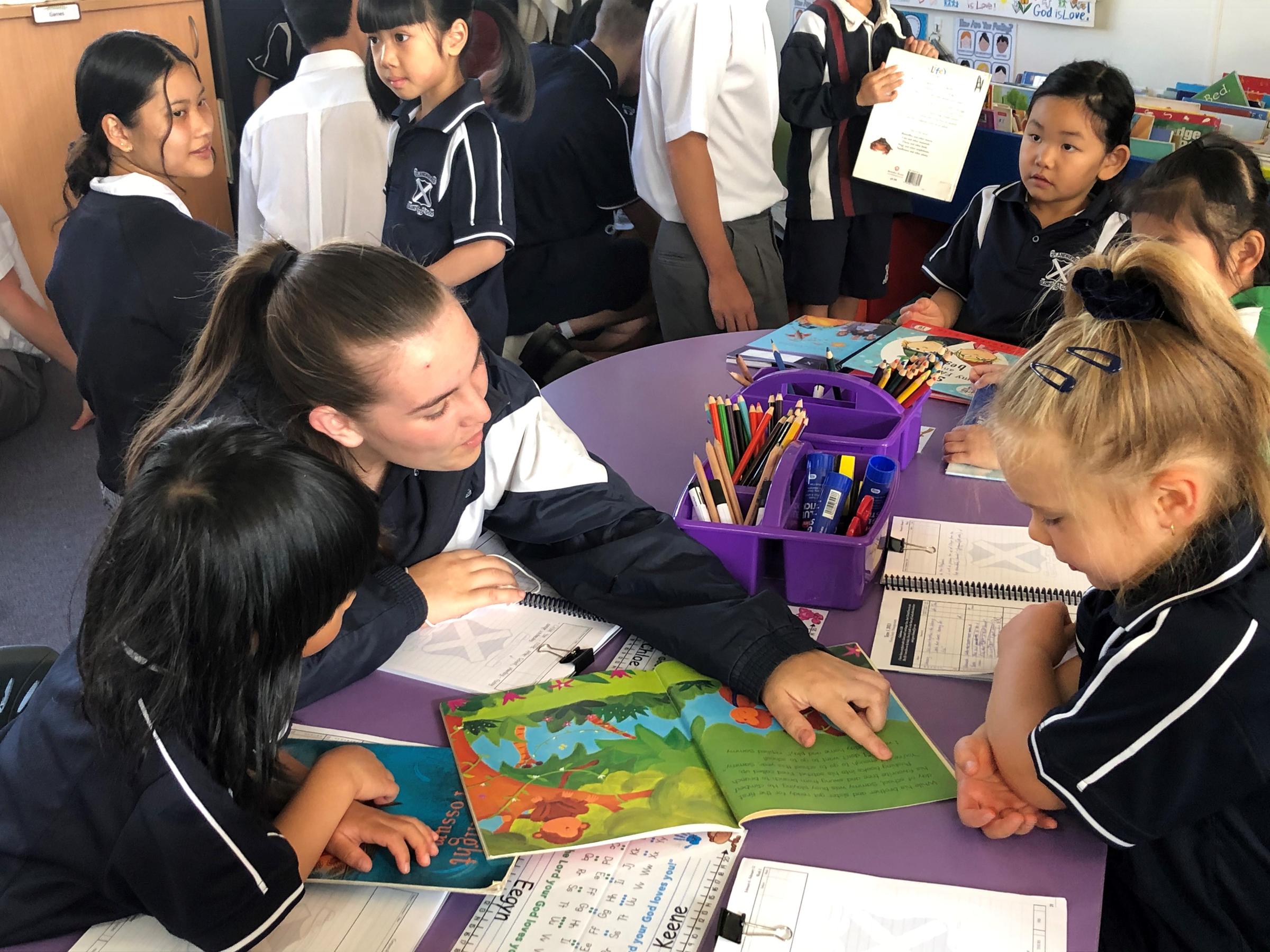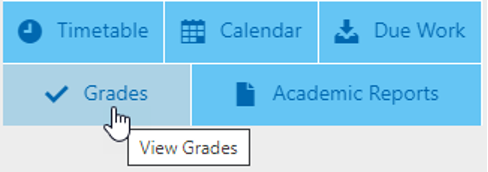LEARNING AND TEACHING

Working Mathematically
Research conducted since 2015 by the Foundation for Young Australians in their “New Work Order” series has identified that today’s students will require a set of transferable enterprise skills such as: digital literacy, problem-solving, teamwork, creativity, communication skills, presentation skills, financial literacy and critical thinking, to engage with an increasingly complex world and to navigate the challenges they face.
As a Christian School we also know that students need faith and Godly character to thrive in our modern world. One area where we as a College are helping to develop Critical Thinking, Creativity and Problem-solving is in the area of Mathematics. A particular goal which we will be working on, from Prep to Year 12, throughout the course of this year, and into the future, is to embed a “Working Mathematically” approach in all Mathematics classes.
Some of the key questions which help mathematicians learn more are:
Can I check this another way? What happens if ...? How many solutions are there? How will I know when I have found them all?
I encourage families to consider the following problem “Number Tiles” and to record their solutions:
Task:
a) Take a piece of paper and tear it into nine squares.
b) Write the numbers from 1 to 9, one number on each square.
c) Arrange the number tiles in the grid below so that the three-digit numbers formed make a correct addition.
d) Record any solutions you find
Questions:
a) How many solutions are there in total?
b) How do you know that you have found them all?
A solution to this problem will be published in the next Newsletter 😊.
Further information on the Foundation for Young Australians “New Work Order” series can be found via the following link: Click Here
The Working Mathematically Process can be found in the attachment below.
Parenting Ideas
Have you ever wanted to get some extra support in your parenting or to get some expert advice on topics such as Raising Teenagers, Dealing with Anxiety, Education and Learning, Developing Resilience and more? Through our College subscription to “Parenting Ideas”, parents have access to a range of resources to help them navigate the school years and beyond.
Parenting Ideas are here to help parents successfully raise confident, happy and resilient kids. Over the course of nearly twenty years, they have become one of Australia’s most trusted sources of parenting education and support. You can explore the many resources on offer to help you in your parenting journey by visiting the Parenting Ideas website. Click here
A recent Parenting Ideas Insight article: “Helping your child become the best student they can be” has some really useful advice to help parents and students make a positive and productive start to the year. See attached article below:
PARENTING WEBINAR -
Free access for St Andrews Parents
St Andrews Christian College's subscription to Parenting Ideas gives our parents this great opportunity to attend the following webinar for free using the voucher code below. A series of Webinars with highly credentialed parenting experts are scheduled for 2021. These webinars can be attended free of charge (regular value $39) by using a Webinar Voucher which will be made available via the College Newsletter in the weeks leading up to the event.
March 24th 8:00 pm – Communicating with teenage boys.
June 23rd 8:00 pm – Connecting with teenage daughters
September 8th 8:00 pm – Taming digital distractions
November 10th 8:00 pm – Using birth order knowledge for a parenting edge
The voucher for the first Webinar is available here:
Study Skills for Students
A useful resource which parents may like to access to assist their children is the “Study Skills Handbook.” This is a website which contains resources to help students develop essential skills for academic success. There are units of work on topics such as improving time management skills, how to study, research skills, summarising, technology use, brain and memory.
Please see the flyer attached below for further information or login to the website www.studyskillshandbook.com.au using these details:
Username: standrewsvic
Password: 130success
Study Skills Tip for January – Top Tips For A New Year
Welcome back students! Working through the units on www.studyskillshandbook.com.au throughout this year will help you build skills and learn techniques to become more effective learners. We encourage all students and parents to log into the site and browse the units to become familiar with the topics covered. Also click on Things to Print after you log in, scroll to the bottom of the page and you will find lots of useful grids and planners to help you.
Top five tips about making the most of your time at school this year and working efficiently at home.
1. Independent Learning: There are two types of work in secondary school. The compulsory work that your teacher tells you to do, and independent learning that you are expected to do when you have no homework. You can print a handout that will give you examples of the types of things you are supposed to be doing for school when you have no homework.
2. Work Smart: If you want to still have a life, but get your home learning done (for most students this will be 1-2 hours per night) then you need to work smart. Keep your personal life and schoolwork separate. Don’t do work in front of the TV, switch off your phone and take a little break from social media. Work in half hour blocks and focus only on your schoolwork during that half hour block. If you are super busy with lots of activities then a great idea is to draw up a timetable for the week and allocate time for schoolwork over the week. You might like to visit these units on the site: Time Management Skills, Dealing with Distractions, Overcoming Procrastination.
3. Be Organised and Plan: Being organised makes your life easier! So have an organised space to work in, record homework in your diary, keep track of completed work and reschedule work not done. When you are told about a test or an assignment, plan the work out to be done over the available time. Make the most of your time in class, being organised and focused in the classroom means you will find it easier to complete your work and work on big things like assessments at home. Check out these units on the site: Home Study Environment, Organisation and Filing, Managing Workload, Using Classtime.
4. Ask for Help Early: If you don’t understand something, ask for help. The sooner the better. If there isn’t time in class see your teacher before or after class or during the break times. No-one expects you to do things on your own. One of the most important contributors to being successful academically is to ask for help often and early. See if your school offers extra support or has a homework help service. And don’t forget family and friends, they might know more than you think! There is a unit on the site all about Asking for Help.
5. Learn How to Study Properly: If you still think that to study for a test you just read your book over and over, it’s time to learn how smart people study! The main things to remember about study for a test are: Make study notes or summaries first (write down in point form what you need to learn), learn these notes not just by reading but by testing yourself on them and do as many different questions as you can as practise. You can learn more from these units: Summarising, Active Studying, Preparing for Exam Blocks,Test-Taking Techniques, Your Brain and Memory.
Study Skills Tip for February – Why do we have to do Homework?
Homework, or Home Learning as some schools now prefer to call it, serves many purposes. It may be to consolidate or check or extend the learning from the day; or prepare for the learning to come in subsequent days. It could be to do with longer term work such as assignments or preparing for tests and examinations. Ultimately it comes back to what school is all about – learning. And learning not just about content, but learning and developing skills. At times students feel that the work they are doing at school is not relevant to their lives, however sometimes we need to look beyond the content to the purpose of the learning exercise. At times the content will be a vehicle to teach particular skills. Much of what we learn in Mathematics develops the problem-solving circuits in our brain. When you are analysing Shakespeare you are learning not just about Shakespeare, but to think critically and expand your point of view and broaden your experience of the world through examination of different lives, emotions and experiences. The message is that everything you learn at school has purpose and value, even if you can’t always quite see it at the time.
There is much debate in the media as to the value of homework. In Primary School it has been shown that only a small number of students actually benefit from doing homework in terms of academic achievement. The exception to this is reading at home – every student benefits from reading. However, other benefits can’t be discounted: developing independent working skills, establishing study routines necessary for learning in later years, helping students master things they are struggling with and allowing parental involvement.
In Secondary School, homework has been proven to be an essential component of academic success in the senior years. The reality of Year 11 and 12 is that a large component of independent learning needs to be undertaken at home. One of the biggest problems for students transitioning to the senior years is that they have not learnt to work effectively and efficiently in the home environment. This is why developing good habits and learning to do at least a solid hour a day of home study is essential in Years 7-10. It is also about developing the qualities of discipline and perseverance, both essential for senior studies. Students will not necessarily like every subject equally, so they need to learn how to make themselves do the work for even their least favourite subjects.
What can you do this year to manage your homework effectively? Try these top tips:
- Get Organised Straight Away: As soon as you get home unpack your bag before you have a break and something to eat. Lay out all the work first. It is easier to get started if you have everything ready to go.
- Prioritise and Plan: Before you start work, write a list of what needs to be done and decide what order you will do it. Focus on what is most important, not just what subject you like best! Also write down how long you think each task will take to do.
- Develop Thinking Pathways: Keep in your mind that it is all about learning. Try and look beyond the actual content to what type of skill this homework might be developing in you – analysing, critical thinking, writing skills, or problem-solving skills for example.
- Chunk Time into Focused Blocks: Do your work in 20-30 minute blocks with no distractions during that time. So switch off the TV, turn off your phone for that 20-30 minutes. When you just focus on the work that needs to be done you’ll be amazed at how much work you complete. Of course if you are on a roll, you can keep going past the 30 minutes.
- Alternate and Chip Away: If there is a task you really don’t want to do, then alternate this with a task you enjoy doing. For example, 15 minutes on the homework you like, 5 minutes on the homework you don’t like. When you chip away at it you will be surprised how quickly you get through the work.
'the hub'
A reminder that ‘the hub’ is now open to all primary school parents.
If you haven’t already explored ‘the hub’ we encourage you to view the Introductory Video and login to see your child’s academic progress through the “Grades” link.
Michael Swanborough
Head of Learning and Teaching



